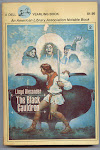 |
| James Hilton |
trance--even those of us who can see the danger ahead can do nothing to avert it--like the dream in which you drive a car towards a precipice and your foot is over the brake but you have no physical power to press down."'
John 16:33 These things I have spoken unto you, that in me ye might have peace. In the world ye shall have tribulation: but be of good cheer; I have overcome the world.










 |
| James Hilton |
Posted by Joanne Cage --
Joanne Cage
at
5:26 PM
1 comments
![]()
Labels: books
Tuesday night I fell and bumped my back. Prayed the Jesus Prayer till daylight, then spent all day yesterday being driven by my sisters from one clinic to another, as I couldn't get in touch with my doctor to ask him what I should do. In severe pain most of the time. The final opinion was that I may or may not have a small fracture of a rib or something, and I should take Tylenol. Don't know if I should continue all those other medications on top of the Tylenol, but I'm doing so. For the time being, I'm tired of trying to ask medical opinions.
Thanks to the Tylenol I did sleep several hours this morning.
Marlowe's Mephistopheles may have been wrong, but it sure feels like Purgatory.
Posted by Joanne Cage --
Joanne Cage
at
1:50 PM
3
comments
![]()
Posted by Joanne Cage --
Joanne Cage
at
12:12 PM
4
comments
![]()
"Tumbling down the rapids from Kinshasa to the Atlantic, the Congo River bursts out of Africa with such force that you can see its sediment churning into the sea for hundred of miles offshore, tinting the blue ocean brown. That was the first violence Konrad would have witnessed as he approached the Congo Free State on the Ville de Maceto in June 1890." - TDW p. 186
Joseph Conrad was born in 1857 and died in 1924. He was born Josef Teodor Konrad Korzeniowski, in Poland which was part of the Russian empire. Early in his adulthood he went to live in England, became a naturalized British citizen, and considered himself an English writer. He worked as a sailor, holding various posts, for twenty years, then quit to write full-time. He married a Miss Jessie George; the book says she was homely, but her photograph is lovely.
Conrad's major novels were written after his retirement to England. They included Almayer's Folly, Nostromo, Lord Jim, and Heart of Darkness. His only "best-seller" during his lifetime was Lord Jim, which was immensely popular soon after its publication.
One Saturday morning in August 1924, Conrad went to see a house that he was thinking about moving to. He had a bout of chest pain during the trip. He went to bed with the doctor's diagnosis of indigestion. His breathing became difficult, and he was placed on oxygen. Next day he felt well enough to get up and sit in his chair; Jessie was laid up in the next room with injured knees from an earlier accident, and she and Conrad called to each other from their rooms. Then "everyone in the house heard a thump. Conrad had fallen dead from his chair...." He was buried in "the kind Kentish earth." TDW
A quotation by the author regarding Heart of Darkness: "Anyone could be savage. Everywhere could go dark."
Posted by Joanne Cage --
Joanne Cage
at
2:03 PM
2
comments
![]()
Posted by Joanne Cage --
Joanne Cage
at
4:02 PM
2
comments
![]()
Labels: books
Posted by Joanne Cage --
Joanne Cage
at
3:26 PM
1 comments
![]()
Labels: books